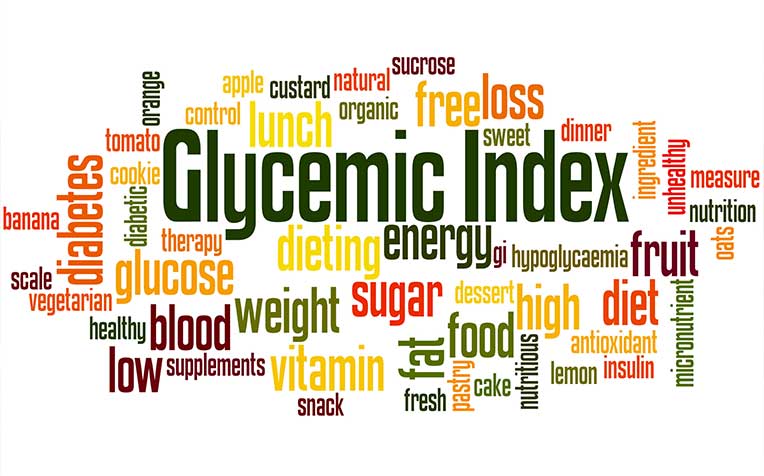You’ve probably heard of the glycemic index when you’ve heard of carbohydrates, but you really know what it is and how it influences your body .
The Glycemic Index tells us about the speed of absorption of glucose in plasma when we consume some type of carbohydrate …
carbohydrates as we already know are a never ending topic in all areas, they are one of the most demonized macronutrients in history, or maybe it’s the fats? mmmm, I’m not sure hahaha
ok, when we want to create a personalized food and training plan and have it adapted to specific circumstances and objectives, carbohydrates are crucial. it’s important to know how, when and which ones to consume.
it is important to know how much carbohydrate to consume, what percentage of fat to consume and how many grams of protein to consume; this time I will only emphasize the carbohydrates.
then, the glycemic index refers to the speed of absorption of glucose found in the carbohydrates we consume in our day, ie, the elevation of plasma glucose. it is from this information that we can create a guide that allows us to know which carbohydrates have a high glycemic index and which have a lower glycemic index. so that throughout the day we know how or at what approximate levels our blood glucose is developing and from there we can know how efficient our food will be in relation to our sports performance, or simply know and control in a healthy way our insulin levels or any pathology that exists in reference to the metabolic syndrome.
Something important to point out is that the insulinemic index and the glycemic index are not the same, so here we are only talking about carbohydrates not proteins, because in that case we would be touching the insulinemic index.
Well then, some studies have pointed out within the foods with a high glycemic index to all those foods elaborated from the refined white flours and to the refined sugars (white flours, white plan, white pasta, white rice, white rice porridge, potato, non-brown oats, bakery, industrial pastry… all those refined and not integral foods).
Within foods with an average glycemic index we would point to whole foods, pseudocereals, wholemeal pastas… and among the foods with a decreased glycemic index are all vegetables and vegetables, fruits and nuts.
IT IS IMPORTANT FOR YOU TO KNOW THAT THIS IS AN ORIENTATION, YOU SHOULD ALWAYS PERSONALIZE THE INFORMATION TO YOUR BODY TO YOUR CIRCUMSTANCES AND YOUR ENERGY DEMAND, TO YOUR ENVIRONMENT… MANY THINGS HAVE AN INFLUENCE AND TRIAL AND ERROR IS WHAT ALLOWS US TO KNOW EXACTLY WHAT WORKS FOR EACH SPECIAL CASE.
Metabolic flexibility and basal metabolic rate are important determinants; these two aspects are different in each person and what constitutes a hyperglycemic food for one may not be for another; what may raise plasma glucose dramatically for one may not be so important for another.
In conclusion The glycemic index (GI) is a measure of how quickly a food can raise its blood sugar (glucose) level. Only foods containing carbohydrates have a GI. Foods such as oils, fats and meats do not have a GI. In general, foods with a low GI slowly raise the glucose in your body. High IG foods quickly raise blood glucose.
Not all carbohydrates work the same way in the body. Some cause a rapid rise in blood sugar, while others work more slowly, leaving the blood sugar level more even. The glycemic index addresses these differences by assigning a number to foods that reflects how quickly they raise blood glucose compared to pure glucose (sugar). The GI scale ranges from 0 to 100. Pure glucose has the highest GI and is assigned a value of 100.
Low GI foods (0 to 55):
Bulgur, barley
Pasta, parboiled rice (processed)
Quinoa
High-fibre whole grain cereal, oat flakes
Carrots, non-starchy green vegetables
Apples, oranges, grapes, and many other fruits
Most nuts, legumes and beans
Milk and yogurt
Foods with moderate GI (56 to 69):
Pita bread, centero bread
Couscous
Brown rice
Raisins
High GI foods (70 and above):
White bread and bagel
Most processed cereals and instant oats
Most snacks
Potatoes
White rice
Watermelon






G I…What is the Glycemic Index?
aklrhdryf
klrhdryf http://www.g08s1l1n5v97d87ea10n5yc8uro64j4as.org/
[url=http://www.g08s1l1n5v97d87ea10n5yc8uro64j4as.org/]uklrhdryf[/url]
its a type of lubricant